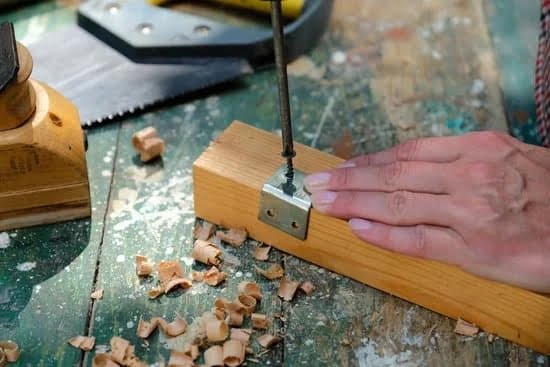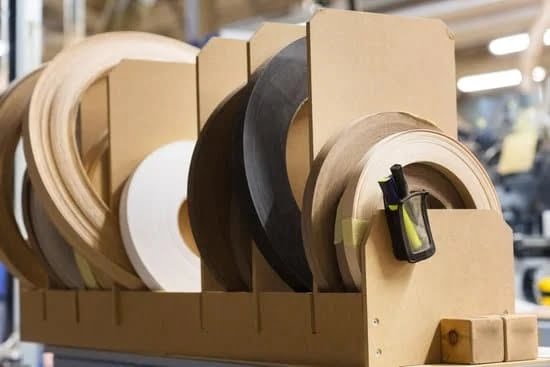Are you wondering, “where can I donate woodworking tools?” Many individuals and organizations find themselves with excess or unused woodworking tools that they no longer need. Instead of letting these tools collect dust in a garage or storage shed, consider donating them to someone who could put them to good use.
In this article, we will explore the impact of donating woodworking tools, where you can donate them locally and nationally, how to prepare tools for donation, the importance of donating quality tools, the process of making a donation, and tips for finding the right donation location. By the end of this article, you will have a better understanding of how your woodworking tool donation can make a difference.
Donating woodworking tools can have a significant impact on individuals and communities in need. Whether it’s providing training and job opportunities for at-risk youth or supporting community projects and initiatives, your donation can help others develop valuable skills and contribute to meaningful projects. By giving your unused tools to those who will appreciate and utilize them, you are not only decluttering your space but also enriching the lives of others through the power of craftsmanship.
If you’re looking to donate woodworking tools, there are various options available both locally and nationally. From local trade schools and community centers to national organizations with specific tool donation programs, there are plenty of opportunities to find a new home for your gently used tools. Whether you want to support your immediate community or reach a broader audience with your donation, there are ways to ensure that your generosity has a meaningful impact.
The Impact of Donating Woodworking Tools
Donating woodworking tools can have a significant impact on both the recipients and the community as a whole. By donating woodworking tools, individuals are providing others with the resources they need to develop new skills, pursue creative projects, and even start their own businesses.
These donated tools can also benefit community centers, schools, and nonprofit organizations that offer woodworking programs as part of their services. The impact of donating woodworking tools can be far-reaching and contribute to the empowerment and development of individuals and communities.
Furthermore, donating woodworking tools promotes sustainability by extending the lifespan of these items rather than allowing them to go to waste. By participating in tool donation programs, individuals are helping to reduce waste and minimize the environmental impact associated with producing new woodworking tools. This act of giving also helps reinforce a culture of sharing within the woodworking community and encourages others to donate their unused or underutilized tools.
Additionally, the impact of donating woodworking tools goes beyond the tangible items themselves. It fosters a sense of goodwill and solidarity within the community as people come together to support each other through acts of generosity. Ultimately, this spirit of giving strengthens community bonds and creates a positive ripple effect that extends beyond just the immediate recipients of the donated tools.
| Impact Area | Benefit |
|---|---|
| Community Development | People can develop new skills or start businesses |
| Sustainability | Reduces waste and environmental impact |
| Community Bonding | Fosters goodwill and solidarity within the community |
Where Can I Donate Woodworking Tools
If you’re looking to donate your woodworking tools, there are plenty of local options available for you to consider. Here are some places where you can donate your woodworking tools within your community:
- Local Woodworking Clubs: Many local woodworking clubs and associations accept donations of gently used woodworking tools. These clubs often use donated tools for educational workshops or to assist members in need.
- Vocational Schools and Community Colleges: Vocational schools and community colleges with woodworking programs may be in need of tool donations. These institutions can put your tools to good use by allowing students to learn and practice their trade.
- Habitat for Humanity ReStores: Habitat for Humanity operates ReStore locations throughout the country, which accept donations of various home improvement items, including woodworking tools. The proceeds from the sale of these donated items go towards funding Habitat for Humanity projects.
Donating locally not only benefits those in need within your own community, but it also allows you to see the impact of your donation firsthand. Whether someone is learning a new skill, building a home, or creating something beautiful, your donated woodworking tools can make a real difference in the lives of others.
When considering where to donate your woodworking tools locally, it’s important to research each option thoroughly and ensure that your donation will be put to good use. You may also want to reach out directly to the organization or institution you are considering donating to in order to inquire about their specific needs and donation process. By taking the time to find the right donation location, you can maximize the positive impact of your contribution.
Where Can I Donate Woodworking Tools
In addition to local options, there are several national organizations that accept woodworking tool donations. These organizations have a wide reach and are able to distribute donated tools to communities and individuals in need across the country. One such organization is Tools for Self Reliance, which collects woodworking tools and sends them to partner organizations in Africa. These tools help individuals learn valuable skills and start their own businesses, ultimately lifting themselves out of poverty.
Another national organization where you can donate woodworking tools is Habitat for Humanity. This well-known non-profit not only builds houses for those in need, but also operates ReStores where donated tools and building materials are sold at discounted prices, with the proceeds going towards funding Habitat’s housing projects. By donating your woodworking tools to Habitat for Humanity, you can make a direct impact on the affordable housing crisis while also supporting sustainable community development.
Furthermore, there is the Workbench Project, which provides woodworking training and job opportunities for veterans. By donating your gently used or new woodworking tools to this organization, you can support veterans as they transition back into civilian life by providing them with valuable skills and employment opportunities in the woodworking industry. These national organizations provide crucial support to communities in need through woodworking tool donations, making them excellent options for those looking to make a meaningful impact with their donation.
How to Prepare Woodworking Tools for Donation
Donating woodworking tools can make a significant impact on individuals and organizations in need. However, before donating your woodworking tools, it is important to prepare them properly to ensure that they are in good working condition for the recipient.
The first step in preparing woodworking tools for donation is to thoroughly clean and inspect each tool. Remove any dirt, dust, or debris from the tools and check for any signs of damage or wear. It is important to ensure that the tools are in safe and functional condition before donating them.
Once the tools have been cleaned and inspected, it is important to gather any accessories or attachments that may go with the tools, such as blades, bits, or safety guards. Including these additional items will enhance the usefulness of the donated tools for the recipient.
Finally, it is essential to package the woodworking tools securely for donation. This may involve wrapping individual pieces in protective material or securely fastening them in a toolbox or case. Proper packaging will help ensure that the donated tools arrive at their destination in good condition and ready for use by their new owners.
By taking the time to properly prepare your woodworking tools for donation, you can make a positive difference in the lives of those who receive them. Whether you are donating locally or through a national organization, ensuring that your donated tools are clean, complete, and securely packaged will help maximize their impact on those in need. Remember that even a small donation can make a big difference to someone looking to start their woodworking journey.
The Importance of Donating Quality Woodworking Tools
Donating high-quality woodworking tools can make a significant impact on the recipients and the community as a whole. When individuals or organizations choose to donate quality tools, they are providing valuable resources that can help skilled artisans, tradespeople, and hobbyists produce better work, complete more projects, and improve their overall livelihood. It’s important to recognize the value of donating quality woodworking tools and the positive effects it can have on those in need.
Here are a few reasons why the quality of donated woodworking tools matters:
1. Durability and Longevity: High-quality woodworking tools are built to last, ensuring that those who receive them will be able to use them for years to come.
2. Safety: Quality tools often come with better safety features and designs, reducing the risk of accidents or injuries during use.
3. Precision and Performance: Donated high-quality tools can help individuals produce higher quality products with greater precision, leading to enhanced craftsmanship and overall satisfaction.
When considering where to donate woodworking tools, it’s important to seek out organizations or programs that prioritize the distribution of quality equipment. By ensuring that donated items meet certain standards, donors can feel confident that their contributions will have a meaningful impact.
In summary, donating quality woodworking tools can greatly benefit those who receive them by providing durable, safe, and high-performing equipment. Consider seeking out reputable donation locations or organizations to ensure that your donations make a positive impact on the lives of others.
The Process of Donating Woodworking Tools
Donating woodworking tools can make a significant impact on individuals and organizations in need. Whether you have upgraded your tools or simply have excess equipment, donating woodworking tools can provide support to those who may not have the means to purchase them on their own. The process of donating woodworking tools is straightforward and can be incredibly rewarding for both the donor and the recipient.
Finding Organizations Accepting Woodworking Tool Donations
When looking to donate woodworking tools, the first step is to find organizations or charities that are accepting these types of donations. Local community centers, trade schools, vocational programs, and nonprofit organizations focused on carpentry or woodworking are great places to start. Many of these organizations may rely on donated tools to provide training and resources to their members or students.
Contacting Potential Recipients
Once you have identified potential recipients for your woodworking tool donation, it’s essential to contact them directly to inquire about their specific needs and donation process. Some organizations may have guidelines or restrictions on the types of tools they can accept, so it’s crucial to understand their requirements before making your donation. Additionally, reaching out to these organizations allows you to coordinate the drop-off or pick-up of the donated tools.
Documenting Your Donation
After finalizing the donation details with the organization or charity, it’s important to document your donation for tax purposes. Be sure to obtain a receipt or acknowledgment letter from the recipient organization, as this documentation will be crucial for claiming a tax deduction for your charitable contribution. Keep records of the items donated, their estimated value, and any correspondence with the receiving organization. This documentation will not only benefit you but also demonstrate the positive impact of your donation.
Tips for Finding the Right Donation Location
Research Local Woodworking Communities
When looking to donate woodworking tools, it’s important to start by researching local woodworking communities in your area. These may include woodworking clubs, organizations, or even schools with woodworking programs. By reaching out to these local groups, you can often find opportunities to donate directly to individuals who are in need of tools for their projects.
Contact Habitat for Humanity
Habitat for Humanity is a well-known organization that builds and repairs homes for those in need. They often accept donations of various materials and tools, including woodworking tools. By contacting your local Habitat for Humanity chapter, you may be able to arrange a donation of your gently used or new woodworking tools to be used in construction projects.
Check With Goodwill or the Salvation Army
Goodwill and The Salvation Army are both national organizations that accept donations of all kinds, including hand tools and power tools. When looking to donate woodworking tools, consider reaching out to these organizations to see if they have any specific needs or guidelines for tool donations. This can provide a convenient option for donating your tools while also supporting the mission of these charitable organizations.
By exploring these tips for finding the right donation location, you can ensure that your woodworking tool donations are put to good use and make a meaningful impact in the community. Whether you choose to donate locally through woodworking communities or nationally through established organizations, your contributions can help support the skills development and creative expression of others while also promoting sustainability through the reuse of quality tools.
Conclusion
In conclusion, donating woodworking tools can make a significant difference in the lives of individuals and communities. By giving away your gently used or new woodworking tools, you are not only helping someone in need but also contributing to the growth of the woodworking industry. Whether it’s a local woodworking organization or a national charity, there are plenty of options available for those looking to donate their tools.
Local options for donating woodworking tools include community centers, vocational schools, and woodworking clubs. These organizations often rely on donations to provide training and resources to aspiring woodworkers who may not have access to proper tools. National organizations such as Habitat for Humanity and Tools for Self Reliance also accept tool donations and distribute them to individuals and groups in need both domestically and internationally.
Before donating your woodworking tools, it’s important to ensure that they are in good working condition. This may involve cleaning, sharpening blades, and checking for any necessary repairs. By donating quality tools, you can help recipients better enjoy their woodworking experience while also extending the lifespan of the donated items.
In summary, the act of donating woodworking tools goes far beyond just providing physical items; it creates opportunities, supports education and skill-building, and brings joy to those who receive them. If you are wondering “where can I donate woodworking tools,” rest assured that there are numerous options available at both local and national levels where your generosity will be greatly appreciated.
Frequently Asked Questions
Is There a Charity That Takes Old Tools?
Yes, there are several charities that accept old tools. Many organizations, such as Habitat for Humanity, Tools with a Mission, and local vocational schools or community centers, welcome donations of used tools to support their programs and projects. These donated tools can be used by individuals in need or can be refurbished and repurposed.
What Can I Do With Unneeded Tools?
When you have unneeded tools, there are several options for what you can do with them. One option is to donate them to a charity or organization that can put them to good use.
Another option is to sell the tools through online platforms or at a garage sale, allowing someone else to benefit from their use. Additionally, you could also consider giving the tools to a friend or family member who might find them useful.
How Do You Get Rid of Unwanted Tools?
There are different ways to get rid of unwanted tools. If they are still in good condition, you could donate them to a charity, vocational school, or community organization as mentioned earlier. If the tools are not in usable condition, you can look into recycling programs in your area that accept metal and electronic waste.
Some communities also hold special collection events for old tools and other household items for proper disposal or recycling. Lastly, if all else fails, contacting your local waste management facility for guidance on how to dispose of the unwanted tools responsibly would be advisable.

Hi everyone! I’m a woodworker and blogger, and this is my woodworking blog. In my blog, I share tips and tricks for woodworkers of all skill levels, as well as project ideas that you can try yourself.





